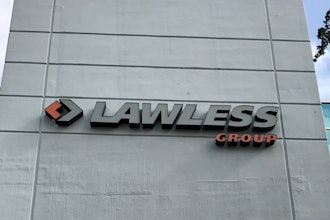Many B2B distributors trust industry-veteran sales reps with pricing/discounting decisions. Reps may also be provided with cost/margin information, as well as the ability to view customer-specific pricing/invoicing histories, so they can make more informed pricing decisions.
These distributors tend to rely on the rep’s judgment, along with some level of controls and incentives, that the rep will sell the distributor’s value. They trust that the reps will properly apply their industry knowledge and their understanding of customer-specific circumstances – and that they will discount only when, and only to the extent necessary. What can go wrong when this approach is taken, and why?
Free Whitepaper: The New Benchmarks for Pricing Excellence
If sales reps do not have enough confidence that HQ-managed system/target prices are market-aligned, they often (rightfully) feel that they need to adjust/override. Discounting is in fact necessary if system process are misaligned with market conditions. Unfortunately, this type of situation frequently leads to patterns of rampant, hard-to-control over-discounting behavior across much of the sales force.
Reps in these situations effectively act as individual pricing managers, determining on their own what might constitute a “reasonable”/market-aligned price (or markup) for a specific customer/item combination. To make this determination, they rely on information displayed/available in the ERP (margin/cost data, customer-specific price histories), along with their own individual experiences with the particular type of customer and product involved.
In real-life, complex distribution pricing environments, where portfolios often comprise thousands of products and customers, it can be challenging for even the most tenured reps to make such pricing determinations in a consistent, optimal fashion. Understandably, reps tend to err on the side of over-discounting, opting to forego a bit of margin, rather than taking risk of losing the sale/upsetting their customer. Over time, they may also develop “rules of thumb” discounting habits (“I just charge X percent”) – and these habits do not necessarily change with evolving market conditions (e.g., stronger branding, better/more competitive service levels or cost positions, etc.). In a sense, by using “rules of thumbs,” reps trade off some precision for efficiency. If these habits are allowed to perpetuate, discounting may become routine: it can become a knee-jerk reaction to a customer asking about prices, or to a piece of margin data displayed on an order entry screen – without real consideration to customer/market value.
Until somebody does the math, this may seem like a reasonable world to live in. But consider the potential profit impact, if you could curtail unnecessary over-discounting, become “better” at pricing, and improve your average selling prices by 1 or 2 percent, without adversely impacting volume? Such gains are typically achievable, and they represent ROIs well in excess of typical “lean” initiatives and other strategic projects in B2B distribution. By embracing the right set of tools, distributors can curtail unnecessarily giving away product cost savings, customer-value generating add-ons/services, and other key features of the distributor’s offering – which often come to exist as a result of great effort/investment by the distributor’s management.
Value-Based Pricing Myths & Pitfalls
MYTH: Value based approaches do not work, because markets set prices for commodity products
Your distribution business is a key player in the marketplace, especially when it comes to the specific markets you play in. What you/your reps do, has a very real impact on the market’s willingness to pay for your products and services!
Your distributorship may be too small to affect overall market conditions. Nonetheless, markets set price ranges, they do not set prices for specific transactions. Ask your reps: if they charged 1 percent more on every invoice last week, would they have lost most of the volume? Likely not! Even small distributors can improve their pricing practices, by understanding where segment-specific price ranges stand, and evaluating their pricing power to intelligently manage where in that range they want their prices to be positioned.
Market research consistently shows: customers rank several distributor program features ahead of “price” in their purchasing decision criteria. They want a supplier they can trust to have the right, quality supplies available to them when they need them. They want technical support. They also want a low price, as well as no-hassle returns. And many other things. Sales reps consistently overestimate the importance of price in the purchasing decision!
PITFALL: Assigning a Value Based Pricing/Selling project to a team of sales reps
Sales rep input and engagement are critical to successfully operationalize value-based pricing/selling.
However, project teams led by sales reps are unlikely to architect an effective value-based pricing/selling program.
This is because:
- reps typically lack the necessary analytical skills
- they have insufficient bandwidth to devote to the project
- their attitudes are biased by their experiences of regularly dealing with customer price complaints (according to research and experience, this also leads reps to genuinely underestimate the true strengths of the distributor’s value proposition).
A proven, effective way to involve reps is to invite a group of them to act as “advisors” to the core value-based pricing/selling project task force.
PITFALL: Starting out by first focusing on the “value communication gap”
Distributors must equip their sales reps with weapons to communicate and defend value. They should not assume the reps will effectively develop such tools on their own, especially if revenue/sales growth tops everyone’s agenda.
That said, sales force training on customer value communication is typically not the first step in an effective value-based pricing/selling initiative.
Even the best value communication tools will be left unused if:
- the reps lack confidence that system prices are value/market-aligned
- effective incentives/controls do not drive the reps to extend effort
- the reps do not find that available value communication tools are practical and easy-to-reference.
Asking reps to communicate/defend value won’t help, if you have not done your homework (plus, most professional sales reps already know they are supposed to sell customers on benefits)!
Lee Nyari is Managing Partner of The Innovative Pricing Group, LLC, a consultancy that develops custom-designed, high-ROI scientific price optimization, value-based pricing, and strategic price management solutions for B2B distribution organizations. Lee is a seasoned consultant and B2B distribution pricing executive with over fifteen years of experience leading strategic pricing projects. His distribution industry pricing background is coupled with engagement leadership roles at top-tier strategy consulting firms. Lee is a Certified Pricing Professional, a Certified Public Accountant, and he holds a full-time MBA in Marketing Strategy from Kellogg School of Management.























